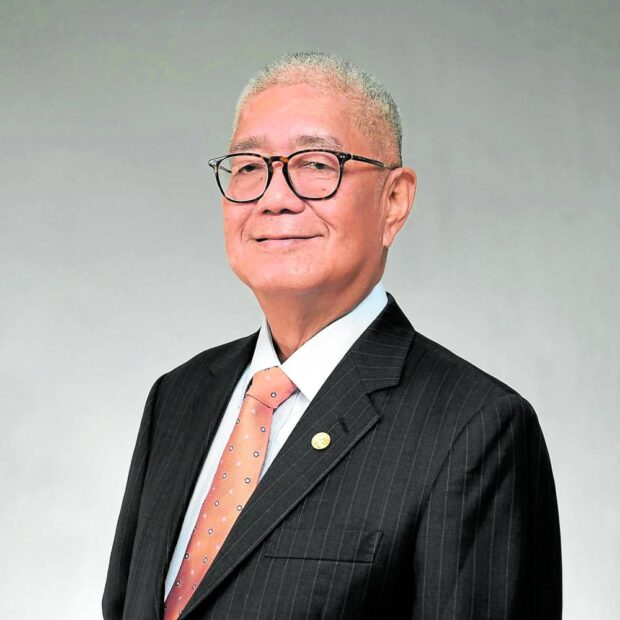Landbank, DBP seen getting BSP reprieve on Maharlika investments

Eli Remolona —BSP.GOV.PH PHOTO
The Bangko Sentral ng Pilipinas (BSP) is amenable to granting a temporary reprieve to Land Bank of the Philippines and Development Bank of the Philippines (DBP) from the minimum capital requirements set by regulators after the two state-run financial institutions made contributions to the Maharlika Investments Fund (MIF).
Bangko Sentral ng Pilipinas Governor Eli Remolona Jr. said that the amount that Landbank and DBP contributed to the MIF reduced the banks’ liquidity, which might make them noncompliant with the capital requirements set by regulators.
But Remolona clarified that both banks were so far fully compliant with such requirements, even after making the contribution to the MIF.
Last Sept. 14, Landbank remitted to the Treasury its P50-billion contribution to the MIF while DBP turned in P25 billion.
“In principle we can provide forbearance, which allows them not to comply for a period of time,” the BSP chief said. “But they will be expected to comply at some point [because] forbearance is always temporary.”
Article continues after this advertisementForbearance in banking involves granting concessions to borrowers who are unlikely to be able to repay their loans under the existing terms and conditions. Forbearance measures can take the form of refinancing or restructuring, or modifying the terms and conditions.
Article continues after this advertisement“They are providing essentially capital which reduces their equity [and] may put them noncompliant with our capital requirements,” Remolona noted, explaining the effect of the banks’ investment in the MIF.
“That’s mainly the form of relief they want,” he said.
Maria Cynthia Sison, director of the BSP’s supervisory policy and research department, noted that while Landbank and DBP were still compliant with BSP requirements, they were asking for regulatory reprieve because “they don’t want their capital position to decline substantially because of [their MIF contribution].”
Capital adequacy
Michael de Jesus, president and chief executive of DBP, told the Inquirer that both banks requested for regulatory relief from the BSP as a “preemptive” measure.
He said the relief that DBP was asking was related to the BSP regulation on the computation of the bank’s capital.
“We seek relief that our contribution (to the MIF) will not be deducted from capital,” De Jesus said.
Based on BSP regulations, all investments of banks, be it to allied or nonallied undertakings, will be fully charged against a bank’s capital.
This means the investment of DBP and Landbank in the MIF will be deducted from the banks’ capital when they compute their capital adequacy ratio (CAR).
This ratio compares the available capital that a bank has on hand to its risk-weighted assets, which essentially measures the risk profile of the bank’s lending and investing activities. The more risk a bank is taking, the more capital it will be required to have to protect depositors.
The CAR provides an idea of whether a bank has enough funds to cover losses and remain solvent under difficult financial conditions.
‘Nothing fancy’ in request
Albay Rep. Joey Salceda, who supported the passage of the MIF Act, on Thursday allayed concerns over the request by the two government banks for a regulatory relief from the BSP.
“The nature of the relief will probably be to include their exposure to Maharlika as ‘admissible’ under the risk-weighting system of the BSP,” said Salceda, chair of the House ways and means committee.
He added: “In simpler terms, there’s nothing fancy here.”
For Salceda, the central bank would not go out of its way in this particular case.
“Maharlika is a sui-generis (of its own kind) investment by LBP and DBP, and it isn’t currently listed as investments that count as ‘capital’ under BSP rules,” he said. “That’s simply because prior to Maharlika, we didn’t have this kind of vehicle in the country.”
Last month, Finance Secretary Benjamin Diokno said the company that would manage the MIF—the Maharlika Investment Corp. or MIC—is expected to be operational by year’s end and start investing in early 2024.
READ: Maharlika may be ‘off and running’ by Q1 of 2024, says Diokno
The law designates the finance secretary as MIC chair while the presidents and CEOs of Landbank and DBP are board members.
Based on the search made by the Inquirer, the websites of the Department of Budget and Management and the National Economic and Development Authority showed that it posted career opportunities for those interested to be a part of the MIC.
In the Sept. 5 post, it was seeking nominations and applications for the MIC, specifically on the positions of president and chief operations officer, and the independent and regular directors.
Nominations and applications for such positions closed last Sept. 27.